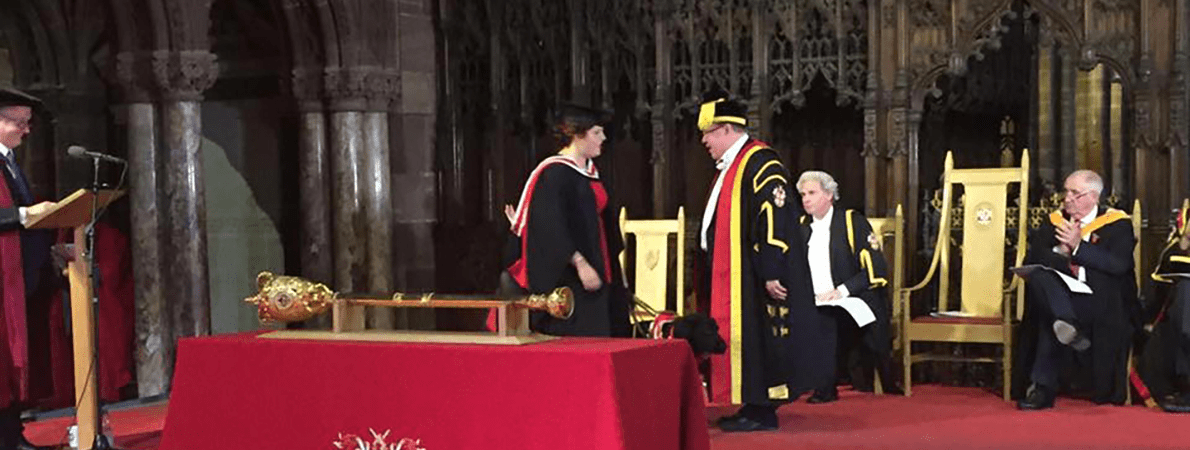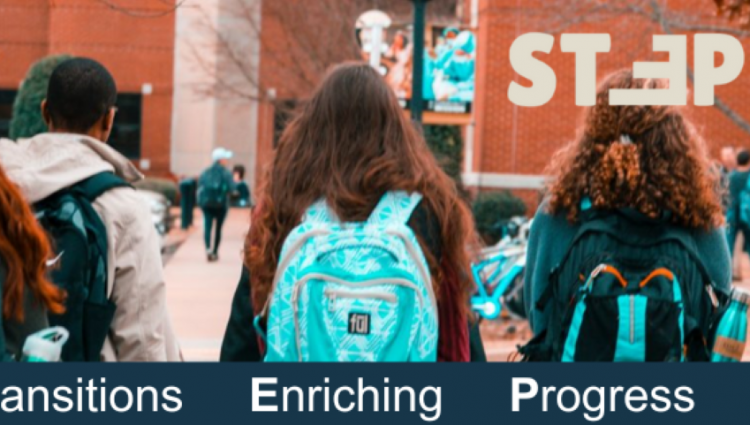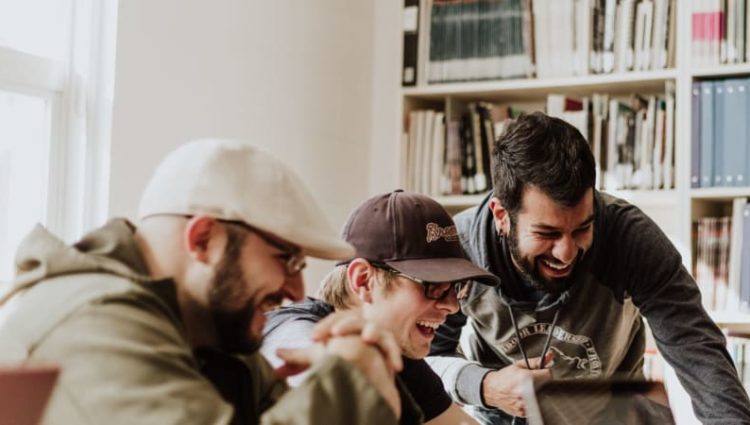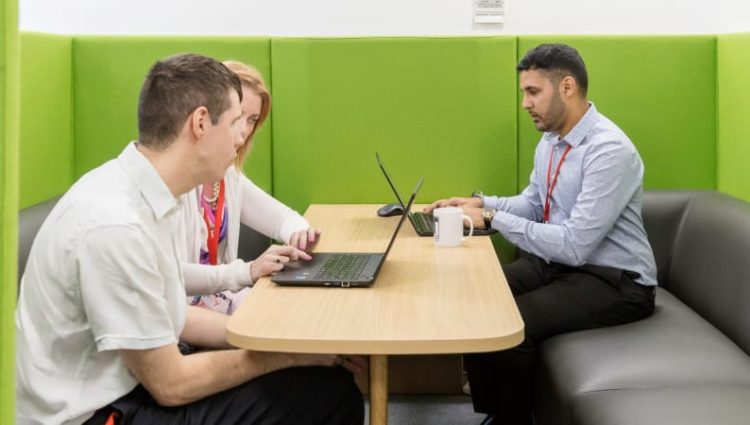Elin Williams, now Volunteer Development Coordinator at Look UK, has been involved in the transition study since she was 15. She talked at the conference about her transition journey through school, university and into employment.
The Importance of Sight Diagnosis
Elin’s sight diagnosis at primary school was pivotal to preparing her for education and getting the support she needed. The diagnosis reinforced the need to plan for the future as Elin would lose more vision. Her Qualified Teacher of Vision Impairment (QTVI) recommended that she learned to touch type and use braille.
By the time she moved to her secondary school she was learning braille and touch typing so could use these skills to cope with the increased volume of work. She retained her QTVI and Teaching Assistant and they helped with the transition including mobility training to orientate around the school. The school also accommodated Elin by painting steps to help with contrast, ensuring her classroom was accessible and putting her in a class with peers from her primary school. The challenge in secondary school was more in a social sense where she felt she was on the periphery in friendship groups.
During her GCSEs she met a transitions officer from RNIB who encouraged her to focus on her long term goals beyond school. She said: “My transitions officer got me to consider what job I would like to do, whether I want to go to university. Nobody else was challenging my thinking in this way – to think about what you want to do rather than what you think you can do!!”
Moving to New College Worcester
Her secondary school did not have a 6th form so this meant she would need to change schools which was initially a real concern. But, ironically, moving away from home at 16 to a residential setting at New College Worcester (NCW) for her 6th form didn’t feel difficult to Elin. She said: “It sounded like the perfect set up. I started to advocate for myself to attend and, with the support of my transitions officer, the local authority approved this.
“It was a relief to be in a setting with less to worry about and have support. I developed socially and with confidence and mobility and prepared for the next steps in going to university.”
University the Hardest Transition
Going to university proved to be the hardest transition for Elin. She did not receive any mobility support until the 3rd term of her first year and relied on notetakers and library assistants to get her to places. She said: “What I needed at that point was timely mobility support to learn routes around my campus and the local community.
“I had a decent level of cane skills coming out of NCW, but I didn’t have support to learn any actual routes around my university until the end of my first year. By that time I’d been restricted to relying on other people for so long that my confidence with my cane skills had plummeted. It would have been so helpful to have learned routes around my campus and local community before Freshers week and during my first term because I would then have had the autonomy to access clubs, societies and socials that I was interested in.”
She admits she was close to packing it all in. But the transitions officer was again a huge help advocating on her behalf and motivating her to keep going. She said: “It took a lot of energy to get lecture notes in accessible formats. The emphasis of responsibility was on lecturers which was often dependent on me reminding them what format I needed. A couple were really good and sent these in advance whereas others would not send them in the right format or on time.
“I spent a lot of time in the library with library assistants. We would pick out potentially useful chapters from textbooks and she would manually scan these to make them accessible for me. It took a long time.”
Elin getting a guide dog was transformative in getting around university and the second half of her degree went much better. The transitions officer helped organise a work placement for Elin where she developed her employability and experience.
After graduating with a first in English Literature, she volunteered with Look UK as a mentor to build her work experience.
Finding Employment Through Volunteering and Internship
She found the Job Centre not particularly helpful. She said: “I think they are better at understanding your situation if you are older and are wanting to return to work after losing your sight but they just didn’t know what to do with me. The most helpful thing they did was refer me to Remploy, who supported me with applications for different jobs and grad schemes. Support from my Transitions Officer and Remploy lead to me successfully applying to the Change 100 internship scheme run by Leonard Cheshire.
“I completed the four-month internship with the Royal College of Radiologists, helping them to organise their annual conference. It was brilliant and a really supportive environment.”
After a further international volunteering position supported by LooK UK, Elin applied and secured her role with Look UK, initially as a part-time events Co-ordinator. The role has changed and she now works full time on its mentoring project.
She applied to the government scheme, Access to Work, for a Support Worker. The irony on needing sighted support to access the scheme was not lost on Elin. She said: “Access to Work allows me to be independent in my work. I would like its administrative processes to be more accessible and more guidance on the process of recruiting a support worker.”
Elin’s Involvement in the Transition Study
Elin first got involved in the longitudinal study at the time of her GCSEs. She had bi-annual sessions with Rachel Hewett which included shadowing her to university lectures where Rachel saw the various challenges Elin faced first-hand. Elin said: “I am really pleased to have been part of the study. Being involved in the project has been great as it has been a time to reflect and look ahead.”
Elin noted that the transitions officer role no longer exists. She said: “It’s such a shame because my transitions officer played such a vital role in helping me achieve my goals.”
Following Elin’s presentation Rachel Hewett commented:
“Unless we have policies in place and put into effect people like Elin will continue to face these barriers.”







